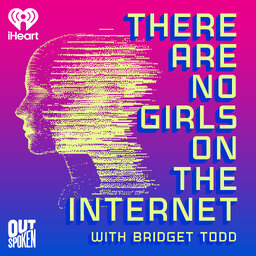DISINFORMED: Trump's Facebook ban was upheld. Is this censorship? NO! Pen America's Nora Benavidez explains.
On Wednesday Facebook's Oversight Board upheld the decision to ban Trump from social media for now. Facebook has 6 months to decide if the decision will be permanent. Some may say banning Trump from social media is a free speech issue, but in a February episode of DISINFORMED, Nora Benavidez, Pen America's director of Free Expression Programs says they're wrong. Let's revisit why she says banning Trump from social media is not censorship.
Follow Nora: https://twitter.com/AttorneyNora
Learn more about your ad-choices at https://www.iheartpodcastnetwork.com
In 1 playlist(s)
There Are No Girls on the Internet
Marginalized voices have always been at the forefront of the internet, yet our stories often go over…Social links
Follow podcast
Recent clips

A TANGOTI Announcement We've Been Sitting On
47:34

Chris Pratt Is Hawking an Anti-Abortion Prayer App; Elon's Grok Is Doxxing Women; DOGE Bros Let ChatGPT Do Their Job; Trump’s Big DEI Loss – NEWS ROUNDUP
1:07:04

Satanic Panic of the 1980s Is Happening Again — This Time in Minnesota Daycares (w/ Sarah Marshall)
51:40
 There Are No Girls on the Internet
There Are No Girls on the Internet